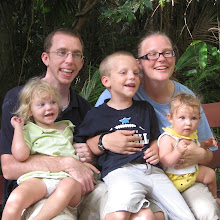The spacecraft and the the 17th century astronomer, but mostly to the spacecraft as we commemorate 4 years since its successful landing on Titan, Saturn's largest moon. Huygens got to Saturn by hitching a ride on the Cassini spacecraft, so for the first 7+ years of the mission, the two were bound in hyphenated harmony as Cassini-Huygens. By 2005, Huygens detached from Cassini while in Saturnian orbit and eventually landed on Titan. To truly appreciate this achievement, here's a review of the timeline:
10/15/1997 - The Cassini-Huygens spacecraft launches
4/26/1998 - Gravity-assisted flyby of Venus (that's when the spacecraft saves fuel by using the gravity of Venus to slingshot its way towards Saturn)
6/24/1999 - Another gravity-assisted flyby of Venus
8/18/1999 - Gravity-assisted flyby of Earth
12/30/2000 - Gravity-assisted flyby of Jupiter
[Various correctional burns over the next three and half years ensure that Cassini-Huygens stays on course.]
5/18/2004 - Cassini-Huygens enters the Saturn system
7/1/2004 - SOI (Saturn Orbit Insertion); again, to make the magnitude of this clear, after 7 years of space flight, Cassini-Huygens managed to reduce its speed by 1,400 mph in only 96 minutes. Cassini has arrived at its final destination - Saturnian orbit, but Huygens still has one last leg of the journey.
12/25/2004 - Huygens separates from Cassini
1/14/2005 - Huygens descends into Titan's atmosphere at 13,500 mph, slows itself down by aerobraking and parachuting; sends its first image back to Earth at 19:45 UTC, confirming that it landed on Titan and is functioning!
This is a really big deal; it's the farthest we've ever sent a lander, and it worked. It sent data for 90 minutes and then signals stopped. Data included images and loads of information about Titan's atmosphere, gleaned from Huygen's descent. It continued to send data from its landing spot in the Xanadu region of Titan. Good work, job well done and all that.
By the way, it's generally pronouced "HOY-ghens" by most English-speakers, which does vary slightly from the original Dutch pronunciation; but unless you're Dutch, you're better off sticking with the American way.
Wednesday, January 14, 2009
Subscribe to:
Post Comments (Atom)




No comments:
Post a Comment